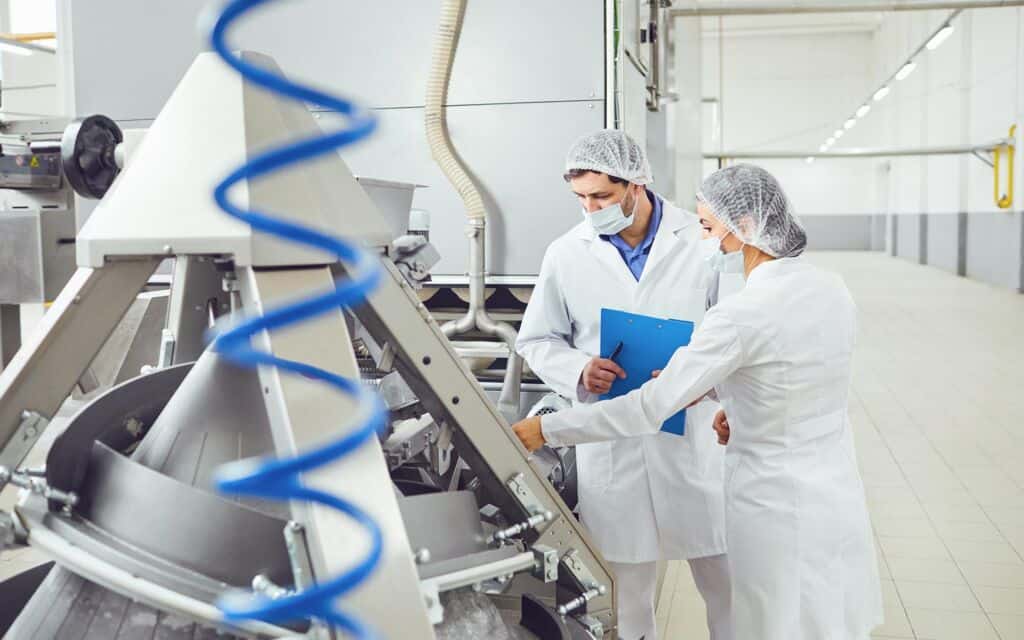
In the world of food production and processing, the safety and quality of products is of paramount importance. Consumers trust that their food is not only delicious, but free from health hazards. One critical aspect of food safety is preventing metal contamination, and the Hazard Analysis and Critical Control Points (HACCP) system plays a pivotal role in achieving this goal. In this blog, we’ll delve into the significance of HACCP certification and how it contributes to the overall safety of the food supply chain.
What Is HACCP?
HACCP is a systematic approach to identifying, evaluating, and controlling food safety hazards. The HACCP system is designed to be proactive rather than reactive. It involves a series of steps that include hazard analysis, critical control point identification, and establishing monitoring and control procedures.
HACCP is a dynamic and adaptable system that can be applied to various sectors of the food industry, including meat, seafood, dairy, and processed foods & beverages. It helps identify and mitigate risks throughout the production process, ensuring the safety and quality of the final product.
The Role of HACCP in Preventing Metal Contamination
Identifying Metal Contamination Hazards
Metal contamination in food products can have severe consequences for consumers and producers. It cancome from various stages, from the initial processing of raw materials to the packaging and distribution of finished products. Familiar sources of metal contamination include incoming ingredients, abrasive products, equipment wear and tear, faulty machinery, and even foreign objects that might accidentally find their way into the product.
HACCP’s hazard analysis step is the linchpin for identifying metal contamination hazards. It identifies potential sources of metal contamination within the production process. By recognizing these hazards, food producers can prevent metal-related incidents.
Determining Critical Control Points
Once potential metal contamination hazards are identified, the next step in HACCP is to determine the critical control points (CCPs). These are specific stages in the production process where control measures can be applied to eliminate or reduce metal contamination risks to an acceptable level. Identifying CCPs is essential because it allows for targeted control of metal-related hazards.
CCPs could include steps like inspecting and maintaining machinery, implementing magnetic separators and metal detectors, or establishing quality control checks during production. By designating CCPs, HACCP provides a framework for taking action where it is most needed to mitigate metal contamination risks effectively.
Establishing Critical Limits and Monitoring Procedures
Once CCPs are identified, HACCP requires that critical limits be established for each point. Critical limits are specific values that must be met or maintained to control metal contamination risks. For example, a metal detector could be set to trigger an alarm if metal objects of a specific size are detected.
Monitoring procedures are established to track the critical limits at each CCP. These procedures involve regular inspections, measurements, or testing to keep metal contamination risks within acceptable levels. For example, metal detectors and magnetic separators may be calibrated and validated regularly to guarantee they function correctly and detect and collect contaminants as intended.
Implementing Corrective Actions
If metal contamination risks are not within the defined critical limits, corrective actions must be taken. HACCP mandates a plan to address deviations from required limits. Disciplinary actions can include stopping production, identifying the source of contamination, removing contaminated products, and managing the underlying issue. This step is crucial in preventing metal-contaminated items from reaching consumers.
Verification and Record-Keeping
HACCP also emphasizes verifying the system. Verification involves evaluating the entire HACCP plan to ensure its effectiveness in preventing metal contamination. This can include periodic audits, reviews, and testing to confirm that the system performs as expected.
Record-keeping is a fundamental aspect of HACCP, providing a documented history of the system’s performance. Records demonstrate compliance with food safety regulations and serve as a reference for continuous improvement. By keeping detailed descriptions of the HACCP process, producers can show they take their responsibilities seriously.
The Benefits of HACCP Certification
Enhanced Consumer Trust
When a food production facility is HACCP certified, consumers can have greater confidence in the safety and quality of the products they purchase. Certification means the facility has taken rigorous measures to prevent metal contamination and other hazards, which can increase consumer trust and loyalty.
Compliance With Regulatory Requirements
HACCP is internationally recognized and a legal requirement in many countries. By obtaining HACCP certification, food producers comply with the regulations of the regions in which they operate. This helps avoid legal issues and demonstrates a commitment to food safety.
Improved Risk Management
HACCP certification is an effective tool for risk management. It enables producers to identify and mitigate risks, including metal contamination, before they become costly incidents or product recalls. By addressing hazards proactively, producers save both time and money.
Competitive Advantage
HACCP certification can provide a significant competitive advantage in the food industry. It sets certified facilities apart and can be a selling point for marketing purposes. Additionally, many retailers and distributors prefer to work with HACCP-certified suppliers, making it easier for producers to access markets.
Consistent Product Quality
Implementing HACCP processes leads to a more consistent and higher-quality product. By preventing metal contamination and other hazards, producers ensure their products meet the same quality standards every time. Both consumers and business partners appreciate this consistency.
From pneumatic transfer to gravity-fed applications, view Magnattack’s wide range of magnetic separators for wet and dry applications.
Maintain HACCP Certification With Magnattack Global
The magnets you use in processing your retail food products and maintaining your HACCP certification must be powerful enough and adequate to effectively capture and retain metal contaminants. Magnattack® Global has an established partnership with Active Magnetics Research that allows us to use the latest assess and test metal fragment controls and provide effective technology, which in turn helps keep your products safe for consumers.
Contact us today to schedule your magnet validation appointment. (add link)
